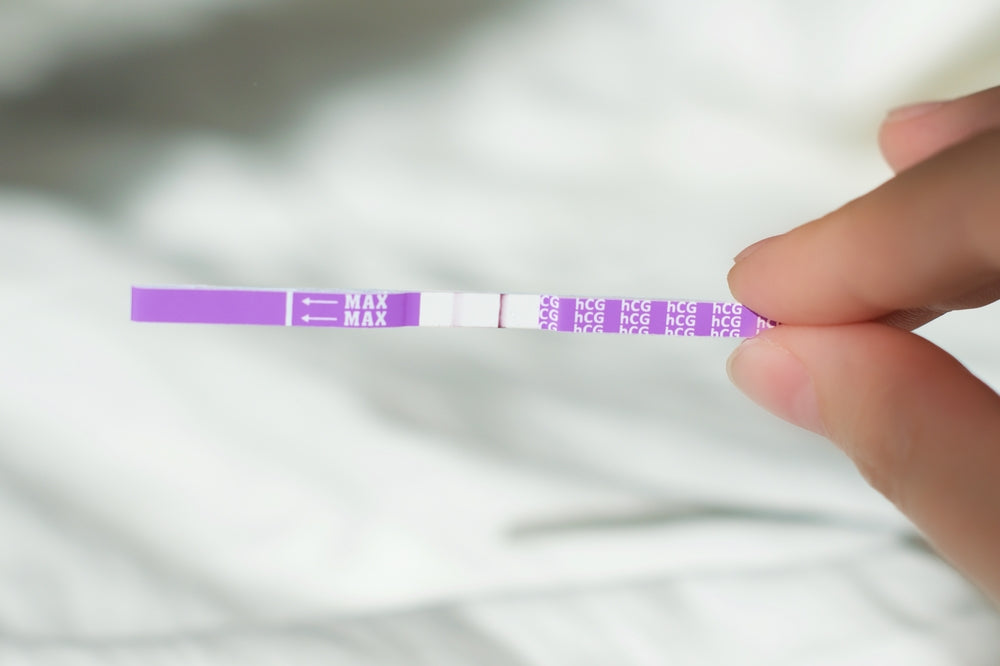Deciphering Faint Lines: Understanding Pregnancy Test Results
Discovering that faint line on a pregnancy test can be an exhilarating yet nerve-wracking moment for many women. It's a small indicator that holds significant implications. But what exactly does it mean?
In this blog post, we'll delve into the world of pregnancy tests to decipher the mysteries behind that faint line and provide clarity for those eagerly awaiting answers.
Understanding Pregnancy Tests
Before we interpret the significance of a faint line, it's crucial to understand how pregnancy tests work. Most at-home pregnancy tests detect the presence of human chorionic gonadotropin (hCG), a hormone produced by the placenta shortly after implantation occurs. When a woman is pregnant, hCG levels increase rapidly, making it detectable in urine.
The Interpretation of Faint Lines
Now, let's address the main question: What does a faint line on a pregnancy test mean? Essentially, a faint line indicates the presence of hCG, albeit in lower concentrations. This could signify early pregnancy, but it's essential to exercise caution and not jump to conclusions immediately, as there are several possible explanations for the faint line.
Possible Scenarios:
- Early Pregnancy: In many cases, a faint line on a pregnancy test indicates early pregnancy. During the initial stages, hCG levels may be relatively low, resulting in a faint line. It's advisable to confirm the results with a follow-up test after a few days to observe if the line darkens, indicating rising hCG levels characteristic of a progressing pregnancy.
- Evaporation Line: Sometimes, what appears to be a faint positive line could be an evaporation line. This occurs when the urine evaporates from the test strip, leaving behind residue that resembles a faint line. It's crucial to read the test within the recommended timeframe (usually around 5 minutes) to minimise the chances of misinterpretation.
- Chemical Pregnancy: Unfortunately, a faint line on a pregnancy test could also indicate a chemical pregnancy, where implantation occurs, but the pregnancy is not viable and ends shortly afterward. While this can be disheartening, it's far more common than most people realise, and the widespread use of ultra early detection pregnancy tests means we are now increasingly aware of this. If this is happening recurrently you may need to seek medical advice for confirmation and support.
- Faulty pregnancy test or user error: Sometimes, faint lines may result from using expired pregnancy tests or improper testing techniques. It's essential to carefully follow the instructions provided with the pregnancy test kit to ensure accurate results.
Next Steps:
If you've encountered a faint line on your pregnancy test, here's what you should consider doing next:
- Retest: Take another pregnancy test after a few days to monitor any changes in the intensity of the line.
- Practice self-care: Regardless of the outcome of the subsequent tests, prioritise self-care and seek emotional support from loved ones or support groups if needed.
- You may need to consider consulting a healthcare professional if uncertain or if you suspect a chemical pregnancy, for further guidance and support.
Conclusion:
In conclusion, a faint line on a pregnancy test can hold various meanings, ranging from early pregnancy to potential evaporation lines or chemical pregnancies. While it's natural to feel anxious or excited, it's essential to approach the situation with caution and seek appropriate medical advice for confirmation and support. Remember, you're not alone on this journey, and there are resources available to guide you through every step of the way.
We have provided lots of resources on this fertility website that you may find helpful:

